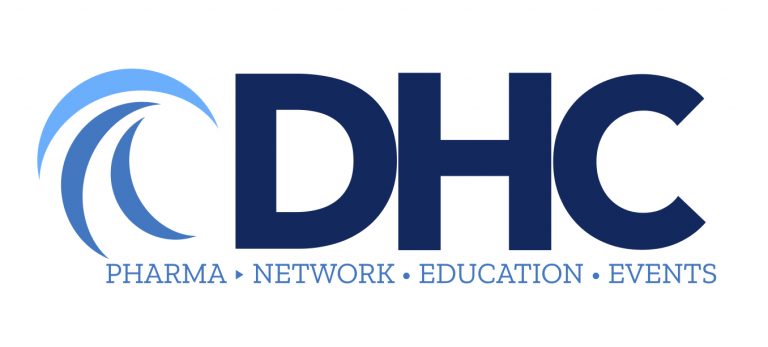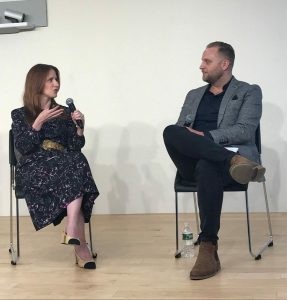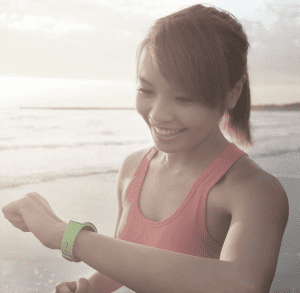
Digital Health Coalition Newsletter – June 2019
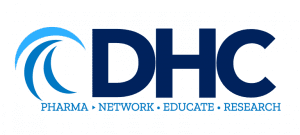
FEATURED CONTENT: Patient and HCP Mobile Innovation Opportunities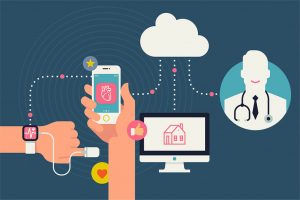
The Cannes Grand Prix in Pharma was an inspiring win this year. The GSK “Breath of Life” app provided a taste of what has been discussed and dreamt about by innovative pharma marketers responding to DHC surveys, sitting on Summit panels, and being interviewed as Innovators. In a recent DHC survey of pharma marketers, respondents ranked the importance of major digital trends. Mobile (Apps, Devices, Marketing) was 3rd, behind only privacy/security and digital services beyond the pill. The ubiquitous nature of the mobile device for a consumer, healthcare or otherwise, doesn’t just mean that there is now an expectation of a carefully crafted consumer experience. It also means that the bar is high for how marketers work within this reality to deliver solutions ‘beyond the pill’ to help improve patient health outcomes.
MOBILE HEALTH APPS
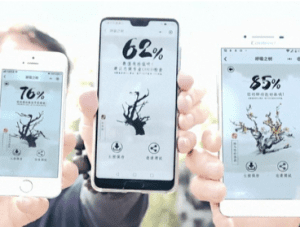 The Grand Prix win by GSK at Cannes realizes this possibility of the ideal mobile health app. In case you didn’t see it, GSK provided Chinese consumers of a popular messaging service with a free app designed to test whether or not the user suffers from COPD, a significantly underdiagnosed condition.
The Grand Prix win by GSK at Cannes realizes this possibility of the ideal mobile health app. In case you didn’t see it, GSK provided Chinese consumers of a popular messaging service with a free app designed to test whether or not the user suffers from COPD, a significantly underdiagnosed condition.
In an impressive marriage of technology and creative, the app provided a beautiful user experience while using the action of blowing air into the phone’s microphone to test lung volume… the varying force of air would create a simulated “blown art” effect on the phone’s screen. (You can read the AdAge coverage of the award here for more detail)
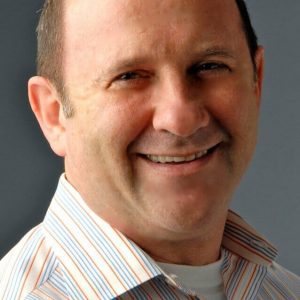 Industry leader and DHC Board Member, David Davidovic, shared his reaction to the win, “the clinical utility of this tool is what is most important to me. Unlike many shiny new objects in this space, this one uses standard technology to deliver a truly patient-centric and useful tool – and is also beautiful. This recognition is a welcome challenge to everyone involved in digital health.”
Industry leader and DHC Board Member, David Davidovic, shared his reaction to the win, “the clinical utility of this tool is what is most important to me. Unlike many shiny new objects in this space, this one uses standard technology to deliver a truly patient-centric and useful tool – and is also beautiful. This recognition is a welcome challenge to everyone involved in digital health.”
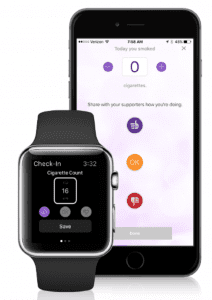 The GSK app is just one example of how passionate marketers in our industry are finding paths for innovation. Pfizer’s Quitter’s Circle was one of the early success stories for mobile apps, seeing significant reach and adoption with consumers interested in getting assistance in order to quit smoking. With strong recommendations from physicians as well, it was not surprising that Pfizer ranked first in a DHC survey earlier this year asking physicians which pharma cos best delivered continue via mobile. The app, in partnership with the American Lung Association, was originally released in 2015, had over 20,000 downloads in the first two years, and now includes Apple Watch integration.
The GSK app is just one example of how passionate marketers in our industry are finding paths for innovation. Pfizer’s Quitter’s Circle was one of the early success stories for mobile apps, seeing significant reach and adoption with consumers interested in getting assistance in order to quit smoking. With strong recommendations from physicians as well, it was not surprising that Pfizer ranked first in a DHC survey earlier this year asking physicians which pharma cos best delivered continue via mobile. The app, in partnership with the American Lung Association, was originally released in 2015, had over 20,000 downloads in the first two years, and now includes Apple Watch integration.
Another player to watch on mHealth/app scene is Apple, making news this month with both the new Femtech app and the release of the One Drop glucose monitor in Apple stores. In DHC interviews with pharma marketers as a part of recent research, we repeatedly heard “tech giants entering the healthcare/therapeutics space” as a top threat to pharma cos.  Maria Simeone, VP of Marketing at PulsePoint offered this advice in response to Apple’s new app “It would be interesting to see pharma marketers start to partner with FemTech apps and offer educational content, and address co-morbidities associated with reproductive health issues. For many with conditions like PCOS, the unpredictability of an irregular menstrual cycles is one concern in a list of many associated conditions and long-term complications – like infertility, Type 2 diabetes or prediabetes, acne, sleep apnea, and depression. FemTech apps combined with informational and educational resources, potentially prescribed by a doctor, may be the missing link in providing personalized care and real results for all women.”
Maria Simeone, VP of Marketing at PulsePoint offered this advice in response to Apple’s new app “It would be interesting to see pharma marketers start to partner with FemTech apps and offer educational content, and address co-morbidities associated with reproductive health issues. For many with conditions like PCOS, the unpredictability of an irregular menstrual cycles is one concern in a list of many associated conditions and long-term complications – like infertility, Type 2 diabetes or prediabetes, acne, sleep apnea, and depression. FemTech apps combined with informational and educational resources, potentially prescribed by a doctor, may be the missing link in providing personalized care and real results for all women.”
At the most recent DHC Summit, imre health’s Robin Sacawa and Ryan Billings (formerly AMAG) shared a telemedicine case study on AMAG’s new partnership with PlushCare in order to drive potential patients to a remote care experience. Ryan explained several key factors to a successful launch of this effort, including the need to “be willing to evolve your approach and optimize your brand assets” for the new platform, as well as keeping in mind that “telehealth is a long-term learning process and truly a commitment”.
GEO-MOBILE FENCING
Another innovation frontier marketers are studying now is the opportunity to deliver customized messages to a patient or caregiver based on their physical location, especially as it relates to the doctor’s office or other dedicated healthcare settings. Recent data shows that patients will spend in excess of 120 minutes at a doctor’s office for a single appointment, but only 20 of those minutes with a doctor. We asked Bill Jennings, Chief Digital Officer of PatientPoint, for his thoughts on the geo-mobile fencing landscape today.
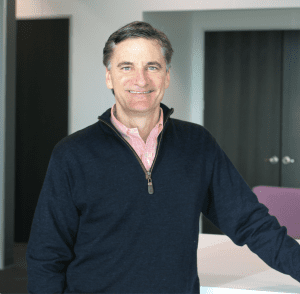 “According to eMarketer, consumers will spend 3 hrs and 43 minutes a day in 2019 on mobile devices. For the first time, daily mobile usage will exceed TV viewing time. Pharma and other healthcare brands have taken notice of this trend and are increasingly looking to leverage mobile geofencing to reach patients as they are making healthcare decisions. Geofencing gained early traction among retailers and restaurants to target customers within a radius around a store. Today, healthcare brands including pharma and hospitals are using geofencing to reach patients at the point of care. Specific health education can be geo-targeted to patients via mobile at the point of care and this mobile messaging becomes very impactful when paired with other point-of-care media including waiting room video screens. In addition, pharma marketers can use geofencing to reach HCPs at industry conventions or other events. Specific location data is required to target patients or HCPs within a geofence and some regulation applies to targeting patients via mobile devices. Studies have shown that when mobile ad targeting is paired with digital out-of-home screens, mobile engagement can increase significantly. Geofencing is enabling a new era of point-of-care education and sponsorship.”
“According to eMarketer, consumers will spend 3 hrs and 43 minutes a day in 2019 on mobile devices. For the first time, daily mobile usage will exceed TV viewing time. Pharma and other healthcare brands have taken notice of this trend and are increasingly looking to leverage mobile geofencing to reach patients as they are making healthcare decisions. Geofencing gained early traction among retailers and restaurants to target customers within a radius around a store. Today, healthcare brands including pharma and hospitals are using geofencing to reach patients at the point of care. Specific health education can be geo-targeted to patients via mobile at the point of care and this mobile messaging becomes very impactful when paired with other point-of-care media including waiting room video screens. In addition, pharma marketers can use geofencing to reach HCPs at industry conventions or other events. Specific location data is required to target patients or HCPs within a geofence and some regulation applies to targeting patients via mobile devices. Studies have shown that when mobile ad targeting is paired with digital out-of-home screens, mobile engagement can increase significantly. Geofencing is enabling a new era of point-of-care education and sponsorship.”
 We also asked Google about the innovation they are seeing with regard to location-based mHealth efforts, and Brian Kim (Mobile Strategy Lead, Pharma and OTC) had this advice for marketers who are looking to be at the leading edge of mobile applications ““Is your mobile site performance up to speed? Find out with Test My Site, and learn how modern web technologies like Accelerated Mobile Pages (AMP) and Progressive Web Apps (PWA) allow you to create fast and engaging mobile experiences: goo.gl/E93WTA“.
We also asked Google about the innovation they are seeing with regard to location-based mHealth efforts, and Brian Kim (Mobile Strategy Lead, Pharma and OTC) had this advice for marketers who are looking to be at the leading edge of mobile applications ““Is your mobile site performance up to speed? Find out with Test My Site, and learn how modern web technologies like Accelerated Mobile Pages (AMP) and Progressive Web Apps (PWA) allow you to create fast and engaging mobile experiences: goo.gl/E93WTA“.
HCP mHEALTH/APP USE
The impact of the Post Mobile Age is also visible in how we communicate with and market to healthcare providers as well. This month, in partnership with HCB Health and SERMO, we surveyed 100 physicians on the SERMO network to get a sense of what this new normal looks like in their day-to-day. The results of this research will be shared more fully during our July 16thwebinar (sign up now). Topline data demonstrates that we have passed the tipping point of mhealth/app integration into physician workflow and physician/patient interaction, but there is still significant opportunity for innovation and refinement.
We surveyed physicians on their use of mobile with regards to both back office/clinical practice and patient interactions. With regard to clinical practice, Rx Management is the most popular use of apps/mobile among physicians, followed by:
- Clinical operations/decision algorithm (49%)
- Intake (30%)
- Payment processing (20%)
- None of the above/other (18%)
When we look at physician attitudes toward mhealth/app and patients, several key findings emerge. Physicians’ opinions on the reliability of mobile technology varies, suggesting we have strides to make before HCPs are fully confident in using mobile tech with patients on an ongoing basis:
- 30% find mobile tech not at all/somewhat reliable
- 32% find mobile tech reliable
- 39% find mobile tech very/extremely reliable
When recommending an app, physicians are taking into account both the app’s features (more on that in the webinar) and several other factors to confirm the app’s usefulness and credibility.
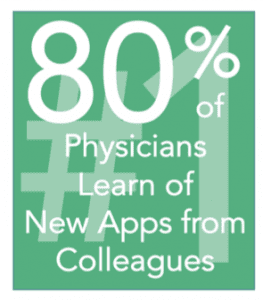 “These survey results clearly show the power of peer-to-peer collaboration given that 80% of physicians learn about new mobile technology and apps directly from their colleagues,” said Erin Fitzgerald, SVP Marketing at Sermo. “The rising use of apps and mobile technology in healthcare is an exciting trend that will enable patients to have greater control of their health and deeper collaboration with their healthcare providers.”
“These survey results clearly show the power of peer-to-peer collaboration given that 80% of physicians learn about new mobile technology and apps directly from their colleagues,” said Erin Fitzgerald, SVP Marketing at Sermo. “The rising use of apps and mobile technology in healthcare is an exciting trend that will enable patients to have greater control of their health and deeper collaboration with their healthcare providers.”
One element yet to resolve is the gap between recommendation – 9 in 10 physicians say they are somewhat to extremely likely to recommend apps/mHealth solutions to patients as part of their care plan– and useful application of the data collected and shared with the physician from those apps. 54% of surveyed physicians indicated that they use reports or data as output from the apps/mobile health solutions they recommend. With that number sitting at just over half, we can identify a significant ways to go for more universal adoption and application of data.
 Colin Foster, Chief Digital Officer of HCB Health summarized the results, “it’s abundantly clear that HCPs are leaning in to mobile as a key part of their daily practice, but the overall utility and value it creates is still siloed and uneven. The fact that close to half of HCPs don’t use the reports/data that come out of apps underlines this point, but also gives us clues about where to go next. The reality is we are probably in the “toddler” phase of maturity in this space, which is actually good news since it means we have a lot of room to evolve and solve for the myriad of problems facing HCPs and patients today.”
Colin Foster, Chief Digital Officer of HCB Health summarized the results, “it’s abundantly clear that HCPs are leaning in to mobile as a key part of their daily practice, but the overall utility and value it creates is still siloed and uneven. The fact that close to half of HCPs don’t use the reports/data that come out of apps underlines this point, but also gives us clues about where to go next. The reality is we are probably in the “toddler” phase of maturity in this space, which is actually good news since it means we have a lot of room to evolve and solve for the myriad of problems facing HCPs and patients today.”
ADDITIONAL INSIGHTS FROM DHC PARTNERS
Pharma’s Renaissance
Via closerlook | Website →
In a recent pharmalive article, closerlook CEO Dave Ormesher wrote on the topic of the relationship between mHealth and data as it relates to drug development. This frontier demonstrates what will be possible as data applications in the physician/patient communication stream expand. Ormesher explained “with 90% of US consumers now reliant on smart phones, access to health information and tools has never been easier. For researchers, mobile health has provided a convenient tool for the management and retention of patients in clinical trials. It can help solve challenges such as distance and travel restrictions by monitoring patients remotely. Mobile devices make it easy for participants and their trial coordinators to communicate via video and audio. Gamification, embedded into apps, helps with engagement and retention.” Read more here →
How Apple Can Lead Tech Industry With New Femtech App
Via PulsePoint | Website →
On June 3, Apple unveiled new Femtech features for the watch iOS 6 at its Worldwide Developers Conference in San Jose, California. The Cycles app will be available on its watch and iPhone and is designed to allow users to log and track their menstrual cycles, view the timing of their next period, and show fertility windows. These features will overlap with current iPhone Health app features and third-party smartphone apps, like Ovia Health. In this post, PulsePoint’s Maria Simeone comments on Apple’s move into the Femtech space with their new menstrual tracking app and how they will need to be more transparent about their data use. Read More Here →
DHC EVENTS COMING SOON

WEBINAR: Impacting Adherence in a Post-Mobile Age
HCB Health and the DHC
July 16, 1pm
REGISTER NOW →
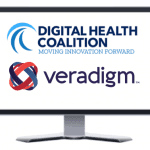
WEBINAR: Beyond Table Stakes – The Acceleration of Prescription Price Transparency
Veradigm and the DHC
July 31, 1pm
REGISTER NOW →
 DHC Fall East Coast Summit
DHC Fall East Coast Summit
October 8th, 2019
Hosted by AstraZeneca
DHC PARTNERS IN THE NEWS
| Are Cookies Going Away? Google Announcement |
|
| Via Crossix | Read More → |
| Is Your Media Plan Guided by ‘Audience Mindset’? |
|
| Via Healthline | Read More → |
| Decoding the Digital Physician: Separating Fact From Fiction | |
| Via DMD | Read More → |
| CES 2019: 5G, Self-Driving Cars and “Smart” Everything | |
| Via Intouch Solutions | Read More → |
| Behind the Content: #ConvinceMetoVax |
|
| Via PatientPoint | Read More → |
DHC CONTENT
| INSIGHTS WITH INNOVATORS: An Interview with Harmony Biosciences’s Joyce Ercolino | |
 DHC Health Scholar Joyce Ercolino shares her thoughts on digital excellence, multi-channel marketing innovation, using digital innovation to impact pharma industry trust, and her role as a mentor for the HBA. We are pleased to share that interview with our readers. Click here to read the interview now. DHC Health Scholar Joyce Ercolino shares her thoughts on digital excellence, multi-channel marketing innovation, using digital innovation to impact pharma industry trust, and her role as a mentor for the HBA. We are pleased to share that interview with our readers. Click here to read the interview now. |
|
